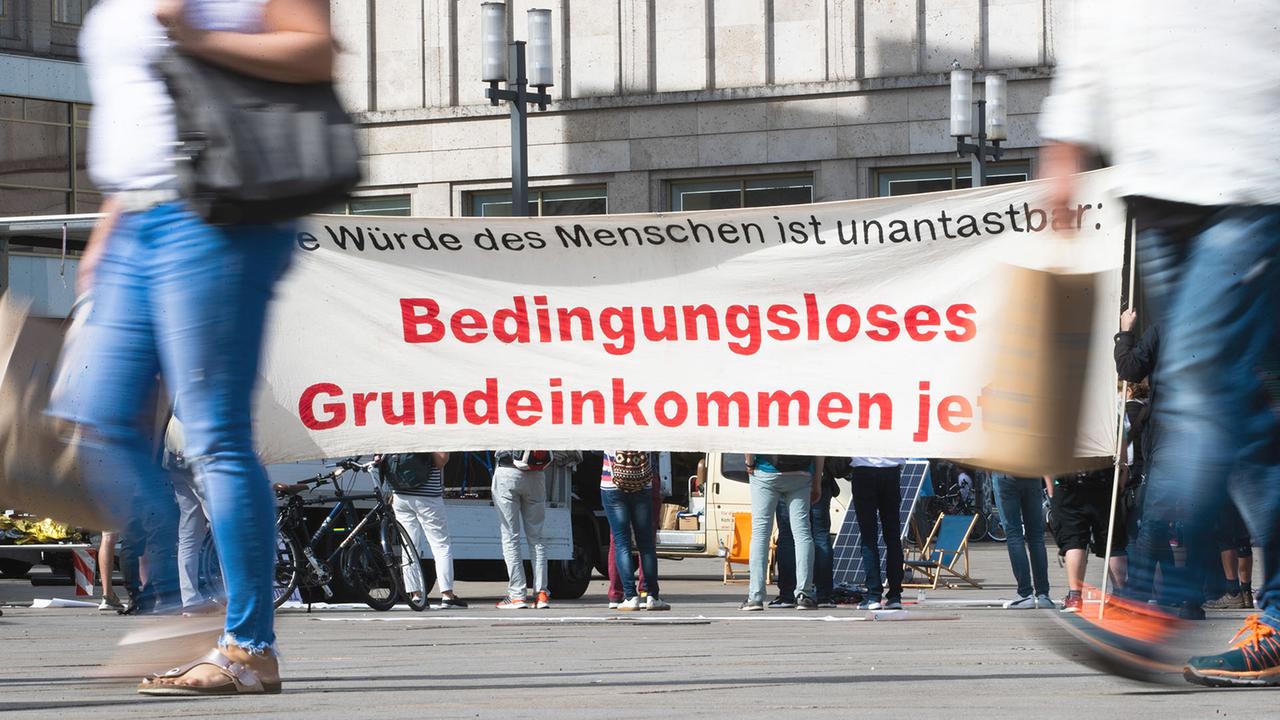After three years, a large-scale study on unconditional basic income in Germany is coming to an end. During this time, the participants received 1,200 euros every month. What does that do to them?
Only a few more hours and it will be over. Dominic Schiffer was able to try out what many others dream of: he received an unconditional basic income, 1,200 euros in his account every month, just like that. “It has changed me,” says the 28-year-old paramedic. It went on like this for three years, and this month his additional income ends.
It all started in 2021, with an email. It said he was one of 122 people taking part in the study. Schiffer couldn't believe it at first, after all, around two million interested people had applied. “It was like winning the lottery for me, spread over several months,” he says. “At first I was euphoric, then overwhelmed by the thought: how can you achieve something with the money?”
What happens to people who don’t need the money?
What do people do with the money and what does money do to people? That is what the German Institute for Economic Research (DIW Berlin) and the “My Basic Income” association want to find out with the study. It is the first long-term study in Germany on the unconditional basic income and is breaking new scientific ground, says study director Jürgen Schupp from the DIW: “We want to know what happens in a group that doesn't actually need this extra money.”
Dominic Schiffer continued to work despite the basic income. But less, he says. Before that, the paramedic had two additional part-time jobs because he had to pay off a loan. “Thanks to the basic income, I finally no longer had to think: Do I even have the money to do something? I've become more decisive, more cheerful, and I go out more,” says Schiffer. Now he was also able to pay for disability insurance, start a truck driver's license and fly on vacation.
Supporters across political camps
The “My Basic Income” association had already been giving away such additional income before this study. “We have learned that it doesn't make people lazy,” explained association founder Michael Bohmeyer three years ago at the start of the study. His thesis: “On the contrary, they are happier in their jobs. They have the feeling that they are in control of their own lives.”
The study is intended to examine this – and is certainly being observed by politicians. There are supporters of the idea across all camps, albeit with different approaches.
The Greens have an unconditional basic income in their policy program. They want to bring together the social benefits that ensure a living and integrate them into the tax system as a payment. “When it comes to child benefit, no one questions the fact that everyone gets it, and it would be similar with basic income,” says Wolfgang Strengmann-Kuhn, the spokesperson for labor market policy for the Bundestag faction. “And it is not an additional payment for everyone, but would be offset against income tax, as with child benefit. It is more of an advance payment to people and a sign: do something with it.”
But an unconditional basic income is hardly possible with the coalition partner FDP. “Receiving money unconditionally from others when you can work yourself is not fair,” says Jens Teutrine, spokesman for citizen's allowance. The Liberals are also attracted to the idea of bundling social benefits such as citizen's allowance, child allowance and housing benefit into one payment and thereby reducing state bureaucracy.
Teutrine wants to achieve this through a negative income tax, “by receiving benefits up to a certain tax threshold and paying taxes once this threshold is reached. This will ensure that overtime is increasingly worthwhile.”
Skepticism among several Bundestag factions
The SPD is fundamentally skeptical: “An unconditional income is not only unfair to those who keep the business running with their work,” says deputy parliamentary group leader Dagmar Schmidt, “it would also mean that the solidarity community would buy itself out of the obligation to take care of each individual employment biography.”
The Union once had its own concepts for an unconditional basic income, but like the AfD it has now positioned itself against it.
“At the moment, that still seems utopian,” admits DIW study director Schupp. In the long term, however, he thinks a universal, unbureaucratic guaranteed payment as a basic feature of the social system is conceivable. “That's why it certainly makes sense to evaluate it scientifically and to first look, free from ideology, at how people deal with such systems in their daily lives.”
The results are to be presented in early 2025
From now on, Dominic Schiffer will have to get by without a basic income in his daily life. His personal conclusion is mixed. He says that the basic income has been very beneficial for him personally. But if it were introduced across Germany, he worries and asks himself, wouldn't prices go up because everyone would have more money? There are still many unanswered questions about the unconditional basic income.
The results of the study are expected to be available in early 2025, by which time the scientists plan to thoroughly analyze the data.





